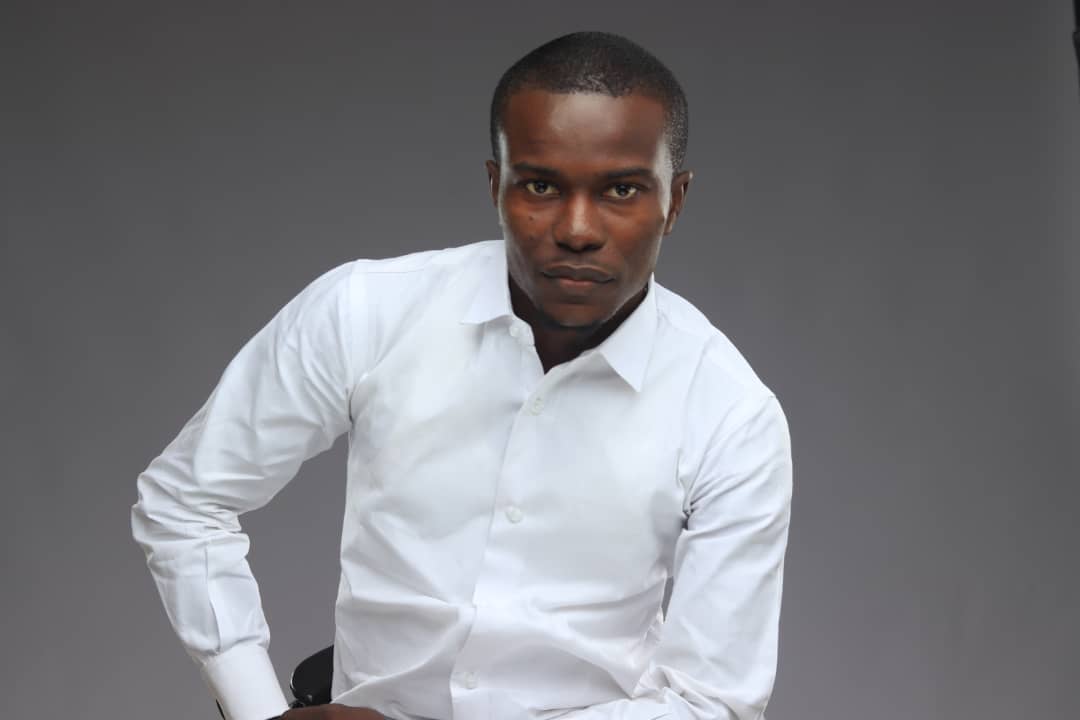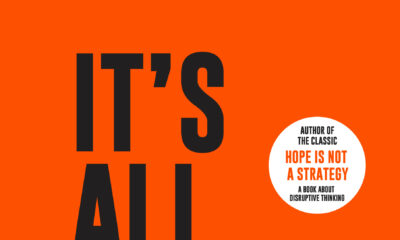Features
Mfonobong Inyang: What We Can Learn from Saul and David ‘s Leadership Model
Humans really don’t say what we think about people especially when they are in power.

In this instalment of leadership imperatives, I’m doubling down on the use of anecdotes and archetypes as veritable tools for storytelling. We sometimes forget that a story being codified or canonised by a community of faith doesn’t invalidate the fact that the dramatist personae were first actual human beings who led their lives, only that their endeavours had great notoriety in the annals of history. Saul and David are very relatable archetypes.
In those days, citizens of a particular nation began to agitate about having a king. Red flag: their desperation for change was not matched by their scrutiny of the leadership they craved. Samuel shared intelligence on the type of leader they were about to get: a king that would appropriate the best of state resources to himself and his cronies while taxing them to high heavens without commensurate delivery of a social contract clause. He ended his warning thus: “You shall cry on that day because of the king you have chosen.”
Being a stiff-necked people, they insisted on having a change of governance despite the scathing details of Saul’s dossier. Deep it, was there anything special about Saul other than being physically taller than everyone else? Saul didn’t possess any technical qualities and couldn’t track down lost animals by identifying their hoof prints. How incompetent can you be as a king that David with mere street OT could outsmart you and your 3000-strong militia? Of course, some ‘intellectuals’ swore that he was the best thing since the cedars of Lebanon.
Saul was the overall best in oppression, junketing and looting the treasury dry but when it came to delivering good governance, he was unavailable – dem no dey see am. He used state resources not for the greater good but for clandestine agendas and personal vendettas. He repressed fundamental rights and religious freedoms; the civic space had so shrunk under Saul’s tyranny that the same prophet that anointed him as king became afraid of going about his usual business. It was so wild that God had to give Samuel wisdom on how to proceed. Saul exhibited signatures of a pseudo-messiah; the destruction, desecration and discombobulation of the very institutions that brought him to power. I wrote about this last year using anecdotes from the Marvel Cinematic Universe.
I had to bring receipts about Saul because he is heavy on propaganda. Just as he was over-hyped before becoming king, he proved to be a spectacular failure in office. At the end of his brutal regime, there were still some political jobbers pushing the Saul-wasn’t-really-that-bad narrative. It’s giving George Orwell’s 1984: “The party told you to reject the evidence of your eyes and ears. It was their final, most essential command.”
Humans really don’t say what we think about people especially when they are in power. So don’t blindly follow mainstream media, they typically kowtow to vested interests and churn out controlled narratives. At best, they are propaganda arms of political groups that engage in information warfare. Even for the so-called indie guys who posture as neutral observers, take whatever they say with a pinch of salt until you conduct a forensic audit of the content of their back pockets. Saul’s leadership was so terrible that God had to anoint another king while he was still on the throne. Saul’s legacy isn’t one that can be legislated; let it be known that his legacy was sorrow, tears and blood. So when anyone tries to gaslight me on Saul’s legacy, I usually ask with a panoply of evidence: is this your king?
David falls into the archetype of a true messiah. Unlike Saul whose CV is riddled with falsehoods, misrepresentations and exaggerated achievements, David had legit doings. If you go and verify anything about him, it checks out. David’s sterling leadership traits earned him an organic following: women composed songs for him without being prompted or induced, as a fugitive in the cave of Adullam people gravitated towards him and even when he eventually ascended the throne, his generals were so fiercely loyal that after he nonchalantly mentioned his thirst for the waters near Bethlehem, they overran the enemy’s garrison at great risk to their own lives and brought it for him to drink. The people showed him love even when he wasn’t yet their king because they knew he was the anointed one – although he hadn’t become the appointed one.
David didn’t just kill Goliath, he inspired a generation that took out the brothers (structures) of Goliath. A man after God’s heart but it wasn’t because his life was perfect – he had a broken heart and a contrite spirit. While Saul became too arrogant for Samuel to advise, David during his reign quickly repented when Nathan rebuked him for abusing his office. Apparently, the apple didn’t fall far from the tree, and Saul’s daughter wouldn’t praise God. Hence David’s epic clap back: “God chose me over your father.” David was from the old order but he operated in the new order with finesse. In one era, David would say: “the lord said to my lord.” Jesus, in another era, would co-sign on that, talmbout, “I’m the root and branch of David.” Deep calls unto deep; from one messiah to another, real recognize real. Messiahs are forged in the crucible of persecution; David saw shege for a greater part of his life especially leading up to his enthronement as king. He also learnt obedience from the things he suffered. In hindsight, he confessed: “It was good that I was afflicted”.
Unlike Saul who dabbled in sorcery just to win a battle, David acknowledged God. David knew regardless of his skillfulness, horses are vain things on the day of battle – he never put his trust in chariots. He remembered that he was the last in his family but God chose him over his brothers (structures) that had the clout to be king. He could have easily assassinated Saul (or his character) but he passed the test of restraint; he considered Saul as his respected elder brother. Saul himself admitted that “surely” David would be king after witnessing such an unbelievable amount of restraint first-hand. Jonathan, Saul’s son and heir-apparent who should ordinarily be a nepo baby, celebrated the grace of David’s life and aligned with him.
Our people say in colloquial terms: “Cow wey no get tail, na God dey help am pursue fly for him back.” David get backing; God is the strength of his life, who should he be afraid of? David no dey worry because Oluwa don co-sign am. Ever the sweet psalmist of Israel, he would intermittently give some cloth talk to his opps like this one: “Don’t rejoice over me when I am down for I shall yet rise again.” He effectively said that it’s never a smart move to bet against him because even if dem wan turn Goliath, David will be there no matter what. Na why we dey call am GOAT because he go always turn up!
POV: David and his commandos had gone for an expedition but by the time he returned, their families had been captured and properties looted. His followers were so livid at him that they planned on cancelling him. David let it slide because he too was a high priest touched by the feelings of their infirmities; he was relative to those he was called to redeem. What they didn’t know was that David was an OG at recovering things that were stolen from him. That year, when he successfully recovered his father’s sheep from the mouth of a lion, there wasn’t social media and because he didn’t have a structure of propaganda, the news didn’t make front pages. David was the comeback kid; this was his life story, but they weren’t familiar with his game. This wasn’t his first rodeo but they were not informed too. David asked God: “Shall I overtake and recover all?” Of course, he did recover everything that was taken from him. Even his own people didn’t believe in him, they didn’t think he would make it but God did!
After surviving Saul’s reign, an unmitigated disaster that shouldn’t happen to any nation twice over because they wouldn’t survive it – the people knew that any incarnation of a Saul-esque leadership was an existential threat to their national interests. Hence, they unanimously met with David at Hebron and unequivocally endorsed him as king over them. They were circumspect this time to align with a transitional leader over a traditional leader. David is him; idán gan gan. No one, not even Samuel was able to sit until David showed up. According to the time of life, when the stars align – the light of David will shine so beautifully like diamonds in the sky.
You will see it, it will come to pass. Selah.























